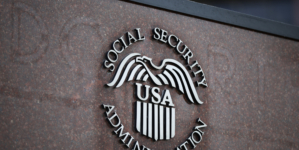-
Judge Strikes Down Trump Order Targeting Susman Godfrey Law Firm - 14 mins ago
-
Zohran Mamdani Ends Triumphant Week With New Endorsements - 38 mins ago
-
Budapest Pride Parade Will Go On Despite Orban’s Ban. How Will He Respond? - 58 mins ago
-
Elon Musk Staffer ‘Big Balls’ Joining Social Security Administration - about 1 hour ago
-
Newsom Signs Budget That Includes Health Care Cuts for Undocumented Immigrants - 2 hours ago
-
Jayden Daniels Aims Comical Remark at Deebo Samuel - 2 hours ago
-
How to Watch Pacific FC vs Vancouver FC: Live Stream Canadian Premier League, TV Channel - 2 hours ago
-
Chinese Police Detain Dozens of Writers Over Gay Erotic Online Novels - 2 hours ago
-
L.A. Army veteran with Purple Heart self-deports to South Korea under threat of deportation - 3 hours ago
-
Mark Cuban Sends Surprising Message About Mavericks’ Cooper Flagg - 3 hours ago
Birthright Citizenship: What Polls Show About Americans’ Views
Following the Supreme Court’s Friday ruling in a case pertaining to President Donald Trump’s move to end birthright citizenship, here’s what several polls show about Americans’ views on the matter.
Why It Matters
While the case is about injunctions, at the center is the issue of whether anyone born in the U.S. is considered an American citizen or not, and what exactly the 14th Amendment says, or doesn’t say, to define birthright.
The Supreme Court’s 6-3 ruling on Friday ended the use of nationwide injunctions by federal judges, clearing the way for Trump’s restrictions on automatic U.S. citizenship to take effect in some states while remaining blocked in others, as injunctions issued by more than 20 states remain in place. In states without active injunctions, Trump’s policy could take effect 30 days after the ruling.
The ruling did not decide whether President Trump’s executive order—which seeks to deny U.S. citizenship to children born on American soil to illegal immigrants—is constitutional.

AP Photo/Jacquelyn Martin
What To Know
While the Supreme Court’s ruling leaves the issue of birthright citizenship slightly unclear and in limbo, Americans’ views on the matter are also split.
The concept of birthright citizenship has long been established in the U.S., with the 14th Amendment of the U.S. Constitution guaranteeing citizenship to “all persons born or naturalized in the United States.”
Released just ahead of the Supreme Court’s ruling, an Emerson College Polling survey of 1,000 registered U.S. voters conducted between June 24 and 25, found that a majority support birthright citizenship, 68 percent. Meanwhile, 32 percent of voters believe it should be ended for people who are not born to U.S. citizen parents.
“Support for birthright citizenship policy is highest among voters under 30, at 83%, and lowers steadily as voters’ age increases, to 55% of voters over 70,” Spencer Kimball, executive director of Emerson College Polling, said.
The poll’s findings also fall along partisan lines, with 90 percent of Democrats supporting birthright citizenship for everyone, with 49 percent of Republicans believing it should continue. The poll has a margin of error of plus or minus 3 percentage points.
A Reuters/Ipsos poll of 1,136 Americans conducted between June 11 and 12 found a smaller percentage of people support ending birthright citizenship, 24 percent, while 52 percent opposed ending it.
Similarly, it found a large partisan divide, with 84 percent of Democrats opposing it, while 43 percent of Republicans support ending the automatic citizenship. The poll has a margin of error of plus or minus 3 percentage points.
A May NPR/Ipsos poll found similar data, with just over half of participants opposing ending birthright citizenship, 53 percent, whereas 28 percent support ending the measure. The poll surveyed 1,019 people between May 9 and 11. It has a margin of error of plus or minus 3.7 percentage points.
A Pew Research Center survey in April found much closer results, with 49 percent of participants in favor of ending birthright citizenship, while 50 percent believe that children born to illegal immigrant parents should be granted U.S. citizenship.
The poll of 3,589 people was conducted between April 7 and 13 and has a margin of error of plus or minus 1.8 percentage points.
What People Are Saying
President Donald Trump wrote on Truth Social: “GIANT WIN in the United States Supreme Court! Even the Birthright Citizenship Hoax has been, indirectly, hit hard. It had to do with the babies of slaves (same year!), not the SCAMMING of our Immigration process. Congratulations to Attorney General Pam Bondi, Solicitor General John Sauer, and the entire DOJ.”
Supreme Court Justice Samuel Alito wrote in a concurring opinion: “First, the Court does not address the weighty issue whether the state plaintiffs have third-party standing to assert the Citizenship Clause claims of their individual residents.”
Professor Samuel Bray said in a statement to Newsweek for a related article: “Given that the birthright-citizenship executive order is unconstitutional, I expect courts will grant those preliminary injunctions, and they will be affirmed on appeal. I do not expect the President’s executive order on birthright citizenship will ever go into effect. Today’s decision is a vindication and reassertion of the proper role of the federal courts in our constitutional system.”
What Happens Next
The Court’s ruling allows the Trump administration to issue guidance on how the executive order on birthright citizenship can be implemented, which can now happen in 30 days.
The executive order could still face challenges, with at least two attempts at class action lawsuits filed later Friday.
One came in the form of an updated complaint in Casa Inc. v. Trump, one of the cases before the Supreme Court. Another was in a new suit filed by the American Civil Liberties Union (ACLU) in New Hampshire, with the group making it clear it was seeking relief for all families across the U.S.
Source link




















